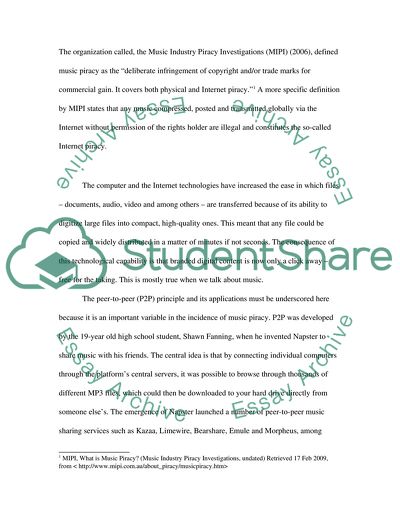Cite this document
(“Negative affects of piracy on the music industry Essay”, n.d.)
Negative affects of piracy on the music industry Essay. Retrieved from https://studentshare.org/culture/1552043-negative-affects-of-piracy-on-the-music-industry
Negative affects of piracy on the music industry Essay. Retrieved from https://studentshare.org/culture/1552043-negative-affects-of-piracy-on-the-music-industry
(Negative Affects of Piracy on the Music Industry Essay)
Negative Affects of Piracy on the Music Industry Essay. https://studentshare.org/culture/1552043-negative-affects-of-piracy-on-the-music-industry.
Negative Affects of Piracy on the Music Industry Essay. https://studentshare.org/culture/1552043-negative-affects-of-piracy-on-the-music-industry.
“Negative Affects of Piracy on the Music Industry Essay”, n.d. https://studentshare.org/culture/1552043-negative-affects-of-piracy-on-the-music-industry.


